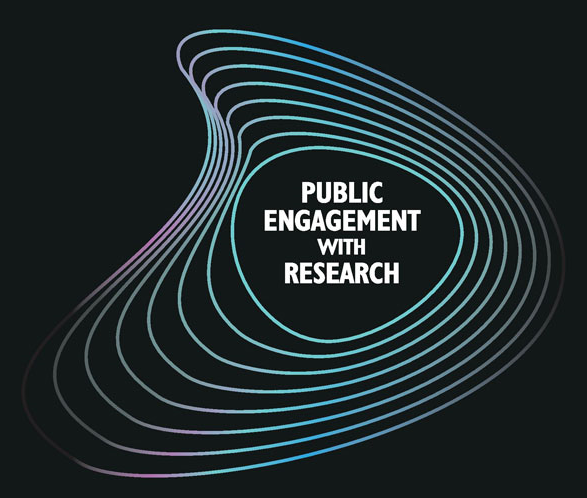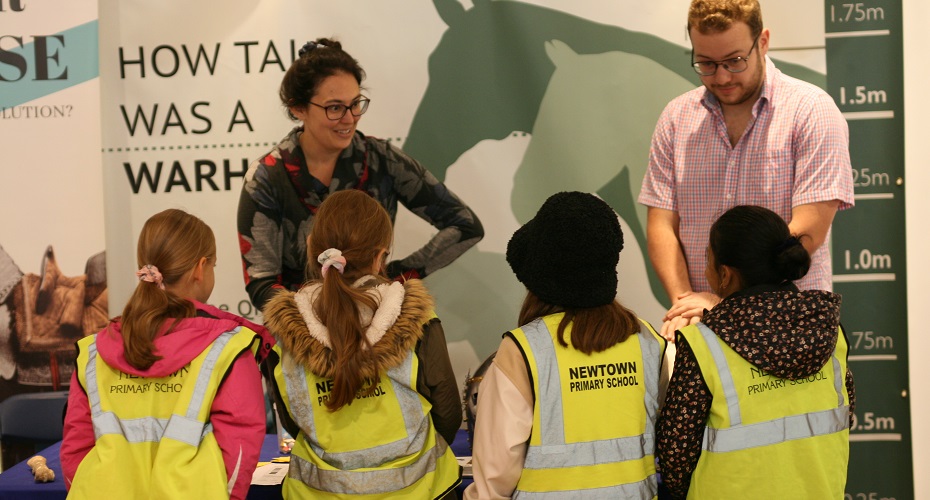
For more information or to discuss any aspect of Public Engagement with Research:
Email: per@exeter.ac.uk
For more information about engaging with people outside the university please visit the Research Toolkit
Public Engagement with Research
Public Engagement is a very important element of research at the University of Exeter. We believe we must engage with the world outside of the university to tackle fundamental issues facing humankind and to ensure our research connects with people’s lives, and is meaningful and relevant to society.
People in our local area, across the country and around the world are making connections with our researchers every day. We are working hard to reach a place in which everyone’s voice is heard and everyone can benefit from the world-changing research that happens here. We want the University of Exeter to be everybody’s university.
Read more about our vision for Public Engagement with Research and how we plan to achieve it.
Public Events
Please sign up to our mailing list to receive email invitations to public events including festivals, talks, workshops, exhibitions, performances and many other activities where publics can engage with and give feedback on our on-going research.
Public Engagement Case Studies
A series of case studies on public engagement and engaged research was produced as part of a project funded by the Association of Commonwealth Universities in 2021. Public Engagement Case Studies
There are many ways to engage with research at the University of Exeter. Please contact us to find about more and discuss your ideas.
- The Global Systems Institute is creating spaces for dialogue with diverse publics - their Global Citizen Engagement Network blends online and offline engagement at a global scale.
- The Health and Environment Public Engagement group, a public user group that engages with the University of Exeter’s European Centre for Environment and Human Health, based at the University of Exeter's Penryn campus in Cornwall.
- The Modelling Advisory Group Public Involvement and Engagement are a group of people from a variety of backgrounds with a wide range of skills and experiences, as well as a passion for public involvement in science and research.
- Grand Challenges is a project week in June each year, in which students design innovative solutions to real world challenges with university academics and external experts.
- The Medical Research Council Centre for Medical Mycology aims to enter into dialogue about their work with our local communities and with wider society, to enrich our own perspectives, and to raise awareness and increase understanding of the urgent issues we are tackling.
- The Exeter Clinical Research Facility (CRF) Steering Committee Steering Committee gives opinions on research proposals, ensures CRF publications are written in plain English and also helps make decisions about the distribution of samples in CRF biobanks.
- The Peninsula Public Involvement Group (PenPIG) is a user led advisory group made up of members of the public, service users and carers. Members of PenPIG ensure the group PenCLAHRC conducts research relevant to the public.
- The Wellcome Centre for Cultures and Environments of Health aims to to ensure that at all stages, the Centre’s research is influenced, created, conducted and engaged with and by people whose lives are affected by the research and its outcomes, on the basis of mutual and reciprocal respect.
Funding for people and organisations outside the university:
Our research takes place across four campuses, three faculties, research institutes, centres and networks, so public engagement with research at Exeter takes many forms.
Patient and Public Involvement
Groups of patients and service users bring their experiences and expertise to guide research into health and society.
Example
The Modelling Advisory Group Public Involvement and Engagement (MAGPIES) are a group of people from all sorts of backgrounds with a wide range of skills and experiences. What they have in common is a passion for public involvement in science and research. MAGPIES are part of the Translational Research Exchange @ Exeter (TREE), an innovative programme designed to build research links between biomedical and clinical research.
Schools Engagement
Schoolchildren engage and interact with research and researchers to enhance their learning and careers, and benefit the research through new and sometimes unusual questions.
Case Study
Exoplanet Explorers is a schools outreach programme using cutting-edge virtual reality and immersive computer-gaming technology to provide a fun, enjoyable and accessible learning experience, promoting interest in science, technology and engineering. The programme was developed and delivered by academics within the University of Exeter Astrophysics Group and the University of Exeter Graduate School of Education.
Community Engagement
Local people and organisations, or groups of people with similar interests and identities, help to create research projects that address urgent issues and pressing questions.
Case Study
Transformations explores the history of gender and science with young trans and gender diverse people (aged 16-25). The project asks questions about medicine, identity, and authority through creative workshops, oral history research, creative writing and performance. The project is led by academics in the Exeter College of Humanities, with artist Jason Barker, and the charity Gendered Intelligence.
The University of Exeter’s Public Engagement Strategic Advisory Group (PEG) brings together members of the University, members of the public and people from external communities and groups who are interested in the design, conduct and sharing of research in a variety of ways. The PEG External Members Working Group is co-developing meaningful ways for PEG to include external voices in its work.
As part of our continued effort to develop engagement with research, the University has an abundance of internal training to help researchers best utilise it, or for professional staff wanting to see what it is all about.
For all information regarding these events, including a wealth of external resources, please click here for the dedicated Public Engagement Training page.





